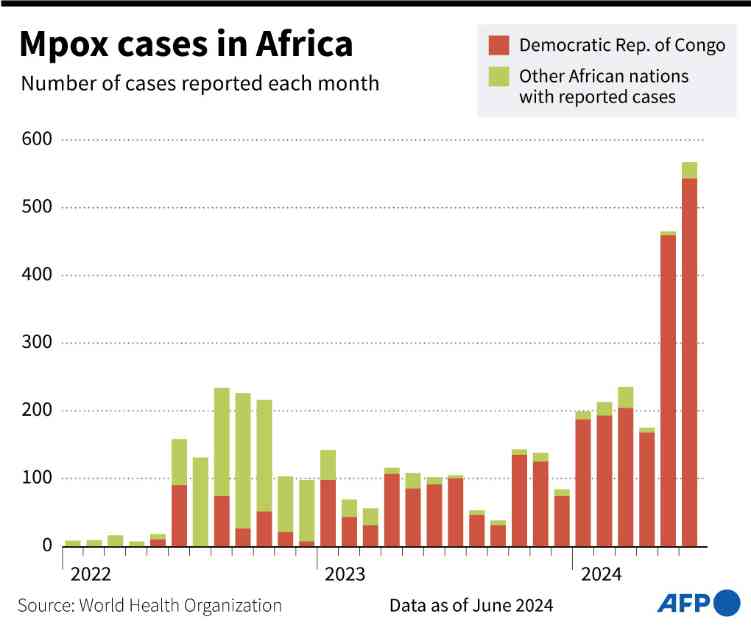An outbreak of Mpox cases in Africa has raised concerns about the causes, symptoms, and prevention of this infectious disease. Mpox, a highly contagious virus, has been spreading rapidly in various regions of Africa, leading to a significant increase in reported cases. As health authorities work to contain the outbreak and prevent further spread, it is essential to understand the key factors contributing to the rise of Mpox cases and how individuals can protect themselves from infection.
The Causes of the Mpox Outbreak
The exact cause of the Mpox outbreak in Africa is still under investigation, but several factors are believed to have contributed to its spread. Poor sanitation and hygiene practices in some communities have created ideal conditions for the virus to thrive and infect individuals. Additionally, overcrowded living conditions and limited access to healthcare services have made it challenging to contain the spread of the disease effectively. International travel and trade have also played a role in spreading Mpox to different countries, highlighting the interconnected nature of global health challenges.
Symptoms of Mpox
Mpox typically presents with flu-like symptoms, including fever, cough, and body aches. As the virus progresses, patients may develop a distinctive rash that spreads across the body. In severe cases, Mpox can lead to complications such as pneumonia and encephalitis, posing a serious threat to vulnerable populations, such as young children, elderly individuals, and those with weakened immune systems. Early detection and treatment are crucial in managing Mpox cases and preventing further transmission of the virus.
Prevention Strategies for Mpox
To prevent Mpox infection, individuals are advised to practice good hygiene habits, such as frequent handwashing with soap and water, covering their mouth and nose when coughing or sneezing, and avoiding close contact with sick individuals. Vaccination is also a crucial preventive measure against Mpox, as it can help build immunity and reduce the risk of infection. Health authorities recommend staying informed about the latest developments regarding Mpox and following any travel advisories or guidelines issued by public health agencies to minimize exposure to the virus.
In conclusion, the Mpox outbreak in Africa underscores the importance of effective disease surveillance, prevention, and response efforts to protect public health and prevent the spread of infectious diseases. By understanding the causes, symptoms, and prevention strategies for Mpox, individuals can take proactive steps to safeguard their health and well-being. Collaboration between governments, healthcare providers, and communities is essential in containing outbreaks and mitigating the impact of infectious diseases on vulnerable populations. Stay informed, stay vigilant, and take necessary precautions to stay safe during this challenging time.
